
ABOUT SCOTT FRANKLAND
Scott Frankland is Head of Content at Sengerio. His spirit of inquiry leads him to the world of transportation and mobility to connect with the industry’s leading experts and shine a light on the hot topics.

22 JANUARY 2021— The motorcoach industry is an essential part of the United State’s passenger transport network with motorcoach travel offering a plethora of transport solutions in addition to being the safest and greenest mode of transportation.
Motorcoaches provide essential travel solutions for all members of every community whether it’s to get people to the workplace, schools, healthcare appointments, or other transport links such as airports. Furthermore, charter and tour services provide safe and efficient transportation for the travel and tourism industry.
In the United States alone, the industry employs almost 100,000 workers and provides 600 million trips each year. With over 3,000 operators that are mainly family-owned, smaller companies with less than 10 vehicles, the pandemic hit the industry hard.
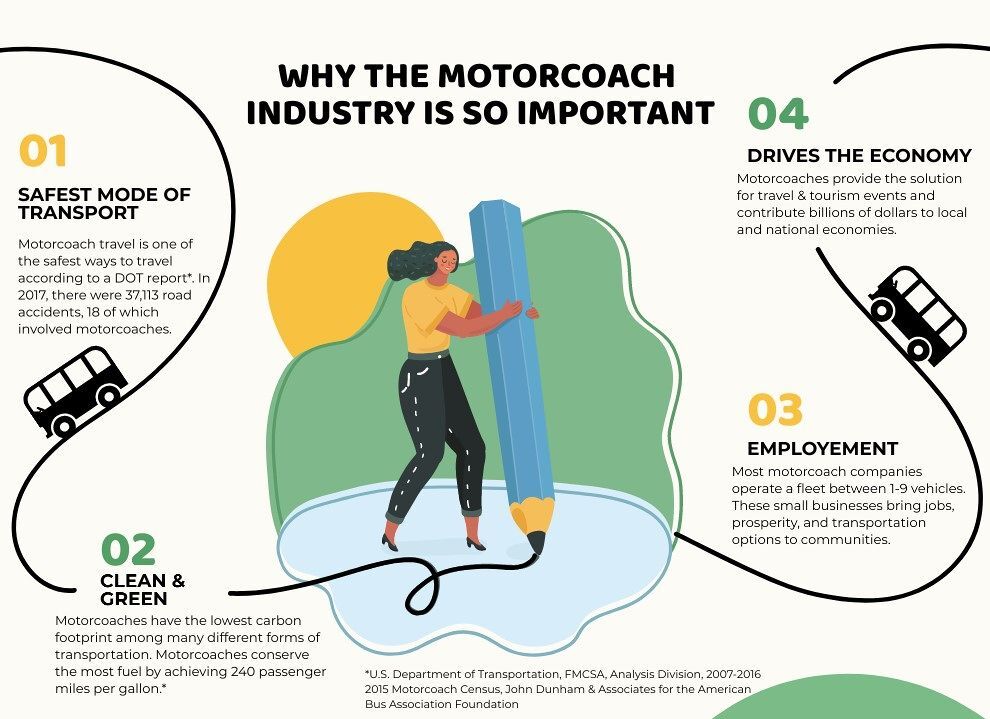
With operations functioning at 10% compared to the previous year, 2020 was a challenging year for operators and manufacturers that desperately needed a lifeline to survive the pandemic. Despite providing such an essential role to connect its nation, the industry had to put up a hard-fought battle to get their voices heard in Washington to finally get its own bill, the CERTS Act, to provide some economic relief.
This article explores how the United Motorcoach Association, a key figure in the industry’s road to recovery, helped to unite the many operators to make their voice heard at Congress and how the association sees the coming year and what it is doing to support its members.
The United Motorcoach Association (UMA) has been representing smaller, privately owned bus and motorcoach operators since 1971 by providing informational, legislative, and regulatory support that its member community needs.
The association has over 700 motorcoach companies and 250 motorcoach suppliers in its member community, making UMA the largest association of professional bus and motorcoach companies in North America.
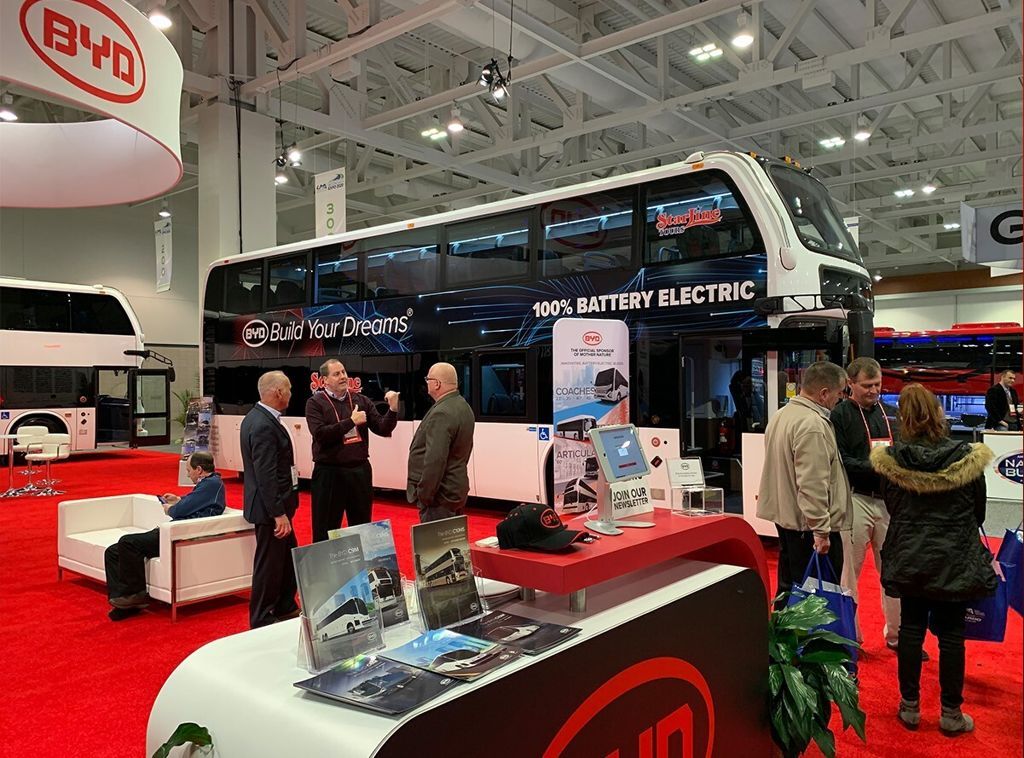
Prior to its name being updated in 1996, the association was initially known as the United Bus Owners Association that served to promote the interests and welfare of its members and provide a voice in Washington D.C.
Moving forward, this year marks UMA’s 50th anniversary as the association continues to support its members of the motorcoach industry by helping them to succeed and provide its members the competitive edge.
Sengerio connected with the President and CEO of the United Motorcoach Association, Larry Killingsworth, to reflect on last year’s events and how UMA and its members are preparing to rebuild the industry this coming year.
Larry Killingsworth joined UMA in March 2020 as Interim President and CEO, but the interim title has now been removed and Larry will continue his leadership into 2021.
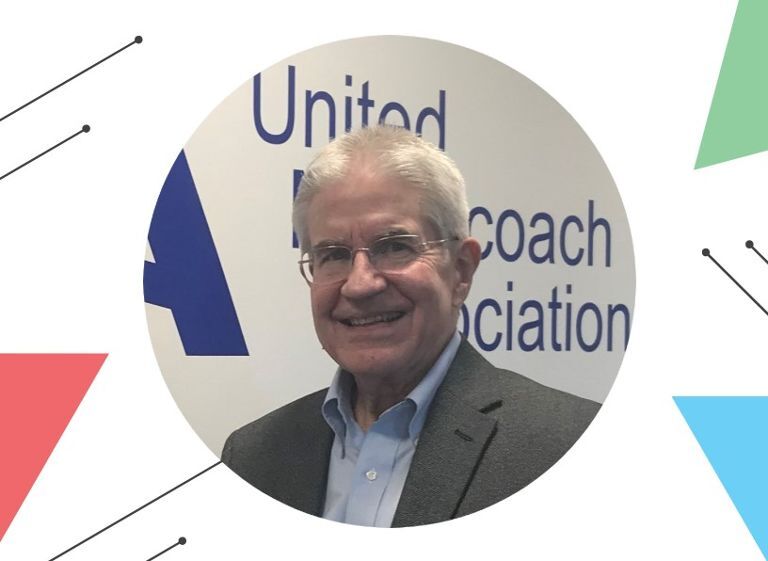
Just as 2020 was underway the pandemic brought the motorcoach industry to its knees. UMA reported that 85-90% of their members had stopped their operations and could only stand and watch, wondering how they’re going to find a solution and get out of this alive.
The first objective was to survive, to make sure your financial structure is such that you can simply survive. This means conserving cash and working closely with creditors and stakeholders, to convince them that you are going to work through this.
UMA has worked very hard to convince large lenders of motorcoaches to defer their debt service so that the smaller operators could survive and begin to recover.
They’ve really been doing that. The equipment finance and insurance partners have worked really well to help our members stay alive.
The 10-15% of companies in operation were the motorcoaches moving emergency workers, military, and transportation for disasters such as hurricanes or fires.

In March 2020, the White House signed the Coronavirus Aid, Relief, and Economic Security (CARES) Act into law to provide a means of supporting the American people and businesses that were being impacted by the pandemic.
While the CARES act had received enormous bipartisan support in a move to reinforce the economic and public health recovery, there were some points in the legislation that prevented smaller businesses, especially in the private bus and motorcoach industry, from accessing the much-needed funds.
Firstly, the act seemingly underfunded two programs of the U.S Small Business Association (SBA) that are essential for small businesses with less than 500 employees to maintain their lifeline. These programs are:
In addition to the limited funding of the PPP and EIDL programs, another issue was that these programs simply weren’t accessible to many private transportation companies throughout the country.
This is because the programs are eligible only for businesses within the hospitality sector that operate at multiple locations and fewer than 500 employees at each location. Consequently, transportation operators that have more than one location are ineligible for the stimulus package.
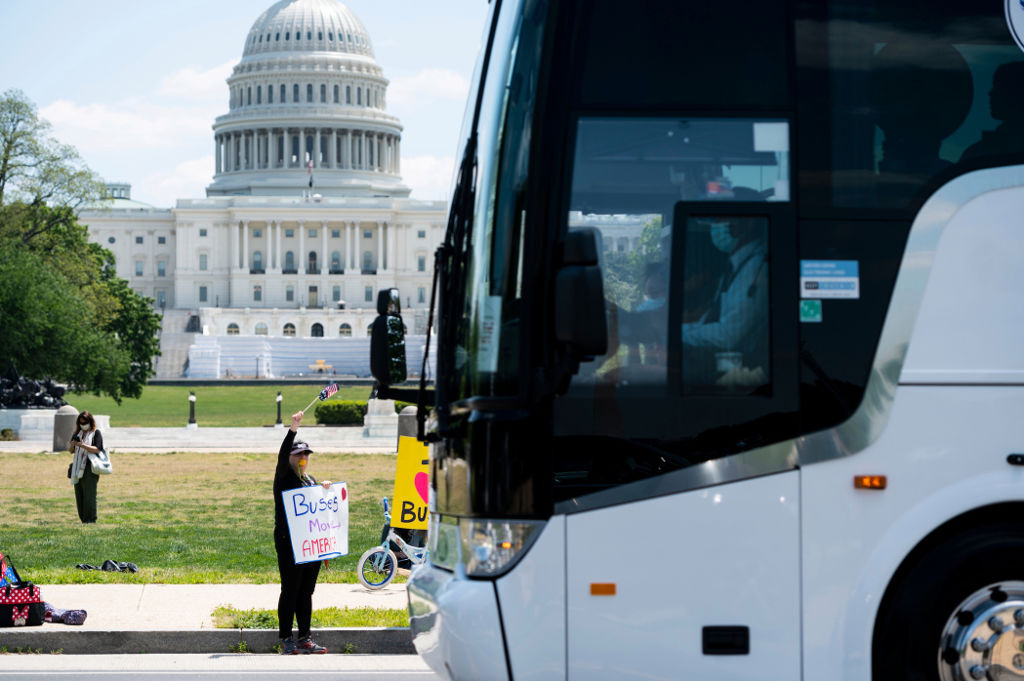
A month later, the United Motorcoach Association and its members, along with many other important associations such as the American Bus Association (ABA) and the National School Transportation Association (NSTA), came together to construct a proposal requesting more specific support for the bus and motorcoach industry.
The proposal addressed the highlighted problems with the CARES act and the changes that are required to ensure the industry receives the necessary support. The proposal ensured that:
Following an enormous letter-writing campaign that saw more than 12,000 people asking Senators to back the proposal, in July this saw two U.S Senators, Jack Reed and Susan Collins, present the Coronavirus Economic Relief for Transportation Services (CERTS) Act in Washington.
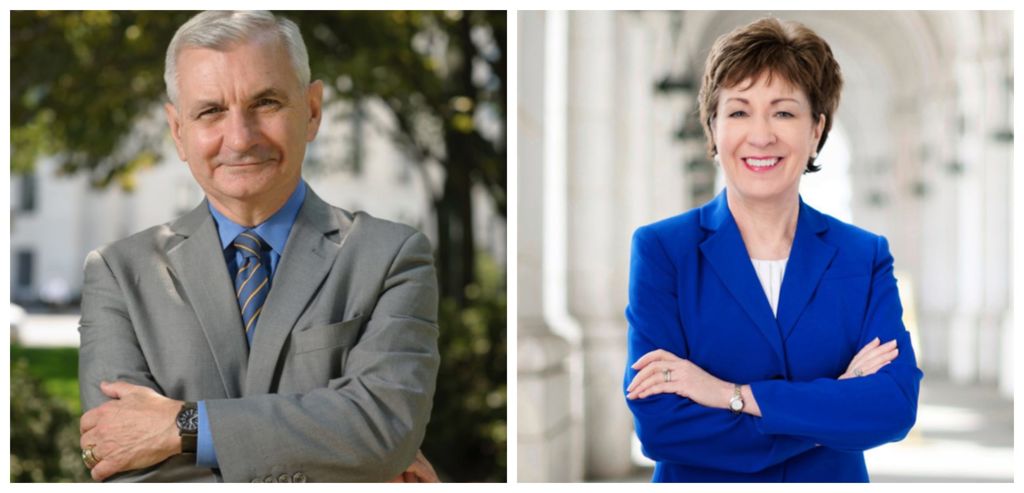
The CERTS Act received its support from Congress with 52 Senators backing the act for relief for the struggling motorcoach industry. The act saw an $8 billion inclusion funded to the motorcoach industry to support its activity as much as possible.
These funds help maintain the elements of bus and motorcoach operators such as payroll, equipment (from vehicles to PPE), and insurance.
But as the difficult 2020 was coming to its end, Congress had begun debating the current relief bill, with some negotiators wanting to reduce the inclusion fund. This called for the United Motorcoach Association to once again unite its community to pressure Congress in preserving the current $8 billion fund.
By December 2020, the deal was settled. The new Consolidated Appropriations Act 2021 entails $900 billion in coronavirus relief.
Following a series of negotiations the CERTS Act managed to survive but the funding rate has taken a huge hit by being reduced to $2 billion— $6 billion less than previously hoped.
Despite this reduction, the deal has proven an important landmark for the motorcoach industry that had never before been included in any broader stimulus package. Furthermore, it reflects the amazing work the industry has done to come together to make the motorcoach industry heard. Larry Killingsworth applauded the deal:
At one point in the negotiations we went down to $0 but a couple of our most vocal supporters got the $2 billion back in there and got it passed.
We’re very excited to have gotten the second round of the CERTS Act in place. Getting the deal was a huge effort. UMA and its members ended up sending over 110,000 separate letters to members of Congress across all 50 states, and had thousands of meetings with Congress.
In addition to the $2 billion relief fund, the PPP program has received $284 billion to continue its support and the new act has also extended the Employee Retention Tax Credit to keep people in the workplace.
This provides smaller businesses another eight weeks of payroll support as well as a way to pay off some debt/insurance services and introduce equipment for any new safety protocols that have been put in place.

The combination of the $2 billion CERTS Act and the 60% support from Congress has provided a solid foundation for the motorcoach industry to go seeking additional funding with an expanded message.
One of the message’s central themes is the importance of the motorcoach industry to the United States’ infrastructure in general.
Our industry was still kind of unknown. It was seen as a quiet workhorse that gets things done and moves people around. But the buses really fill in the network of helping people move from major cities to secondary and third level towns, so I think that message is finally getting out to people that our industry is really important.
President Biden has recently announced that his team is working on a new stimulus package that they are hoping to get passed as early as this spring.
Until now all indications of the new package have been positive, with the President open to expanding the stimulus spending to as much as $1.9 trillion in the next round. The new package more seemingly concerns stimulating the future growth of the U.S. economy rather than simply saving it.
While the Democratic party is offering a greater investment into the stimulus package, this may be accompanied by a flock of new rules and regulations that motorcoach operators will have to comply with— a prospect which can be rather burdensome.
The United Motorcoach Association will be pushing back against this burden and push forward to get as much stimulus funding as we can.
In order to seek a larger proportion of these funds from the relief package, UMA and other associations like the ABA and NSTA, have a team working with a coalition of lobbyists in Washington to make the matter heard.
Not only is this coalition formed by transport associations and its members but also major manufacturers that are hoping to get the industry rolling again.
Among this support is the Motor Coach Industries (MCI), that is owned by North America’s largest bus manufacturer New Flyer, and another leading bus manufacturer Prevost that’s part of the Volvo Group. Additionally, there are several other manufacturers that were beginning to expand on the U.S market prior to the pandemic who have a stake in seeing operators survive the crisis.
The coalition is currently having regular meetings to construct a strategy on how they plan on approaching the new deal later in the year.
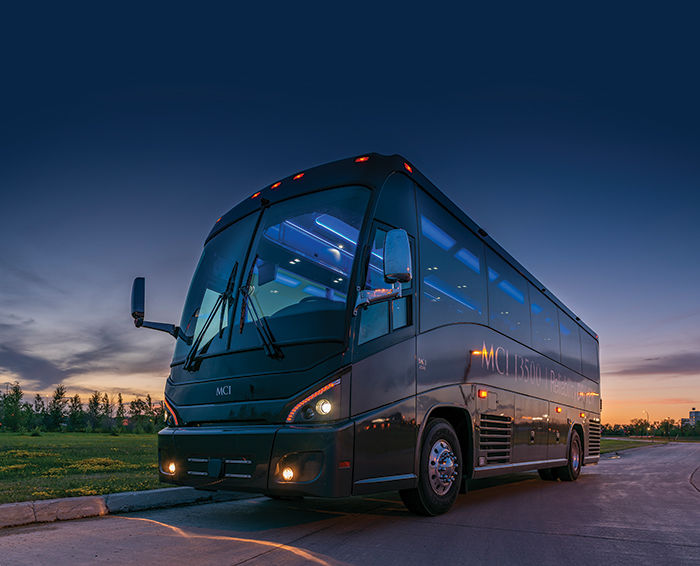
During the interview with Sengerio, UMA’s President Larry Killingsworth brought up the association’s theme for this year, ‘Ready. Aim. Restart!’, referring to the importance of preparation for the road ahead and an important lesson that can be learned from the previous year:
Be prepared in the future for traumatic events. This means be more financially cautious, keep reserve funds in place so that your business is prepared for the unknown.
Moreover, diversify your business. Don’t be dependent on people calling up and needing to charter motorcoaches. Reach out and look for scheduled services to support local communities.
This second point reflects how the pandemic has indeed influenced the market and the importance for operators to adapt to this change in order to find business. But with the growing commuter segment in the United States, a number of opportunities are arising for private operators to support commuter services in the public sector.
One alternative market is working with larger public transportation networks. Sometimes there are potential private-public partnerships where private transportation companies can help the large public transit authorities within niche markets.
With recreational vehicle (RV) sales on the rise in the United States, Larry Killingsworth believes that domestic travel is going to increase dramatically as we slowly exit the crisis.
RV sales are booming because people feel like they’re in control. At this point they can travel domestically safer than internationally.
So we’re encouraging motor coach operators that have just been dependent on chartering to affiliate with tour operators to create fresh tours to visit the landmarks of the United States.
The growing interest in domestic travel is inspiring the tour business to create tours that vary from their more traditional services.

In fact, the tour business is reshaping its approach and offering a greater array of themed tours. This may include services such as, visiting historical sites, national parks, cultural trips such as visiting the history of the Blues along the Mississippi River, and even beaches.
By doing this, tour operators can attract passengers of the younger generation who are wanting to travel domestically and feel safe about doing so.
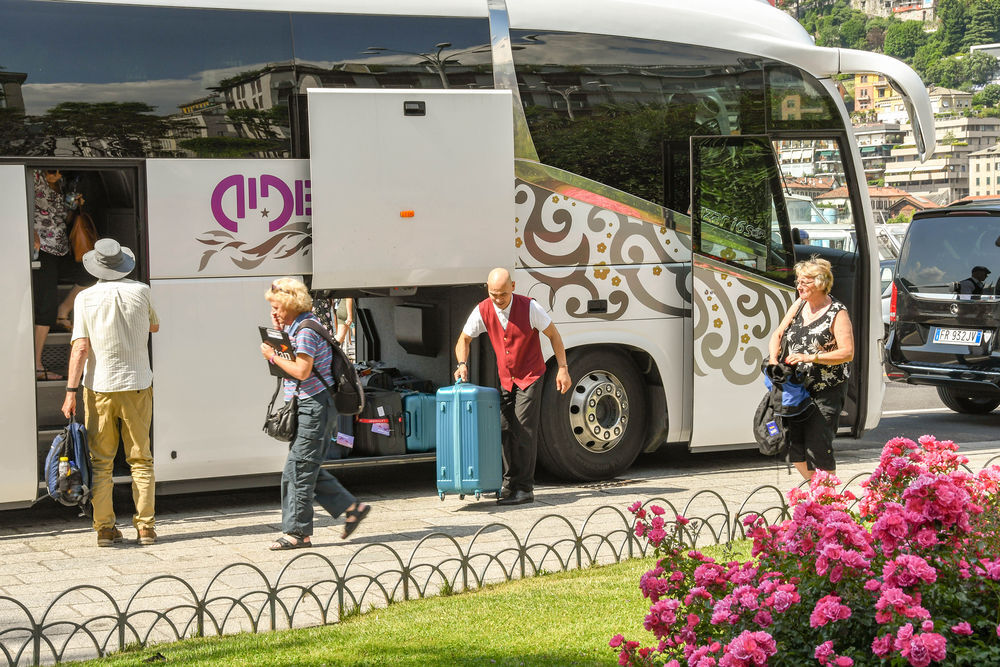
In addition to tours, with the vaccine program gradually being rolled out the sports industry is expecting to make a valiant return as the postponed fall sports from last year are set to resume this spring alongside the usual events.
These sports have been rescheduled for spring, along with the spring sports. So when we get to next fall, we’re going to see more of these required services double up. The motorcoach industry is really optimistic about the way sport can make its comeback.
As the public continues to be vaccinated, the country is slowly beginning to learn how to live with the pandemic and the comeback is on its way. When asked about the potential growth in the motorcoach industry in 2021, Larry Killingsworth shared his optimism about the potential growth and need for transportation solutions this year.
If we use 2019 as a base level, in 2020 the industry operated at 20% of that level. In 2021 we expect the first 6 months to continue operating between 20-30%. However, by the second 6 months we think we can be back up to 60-70% of our normal annual revenues.
Hopefully this time next year we will be back up to 80% with more opportunities available for our members and partners in the industry.
The United Motorcoach Association celebrates its 50th year anniversary of serving the motorcoach industry. This is a fantastic achievement for all its members that make up the association, many of which are family-owned, multigenerational businesses that have been a part of the association from the very beginning.
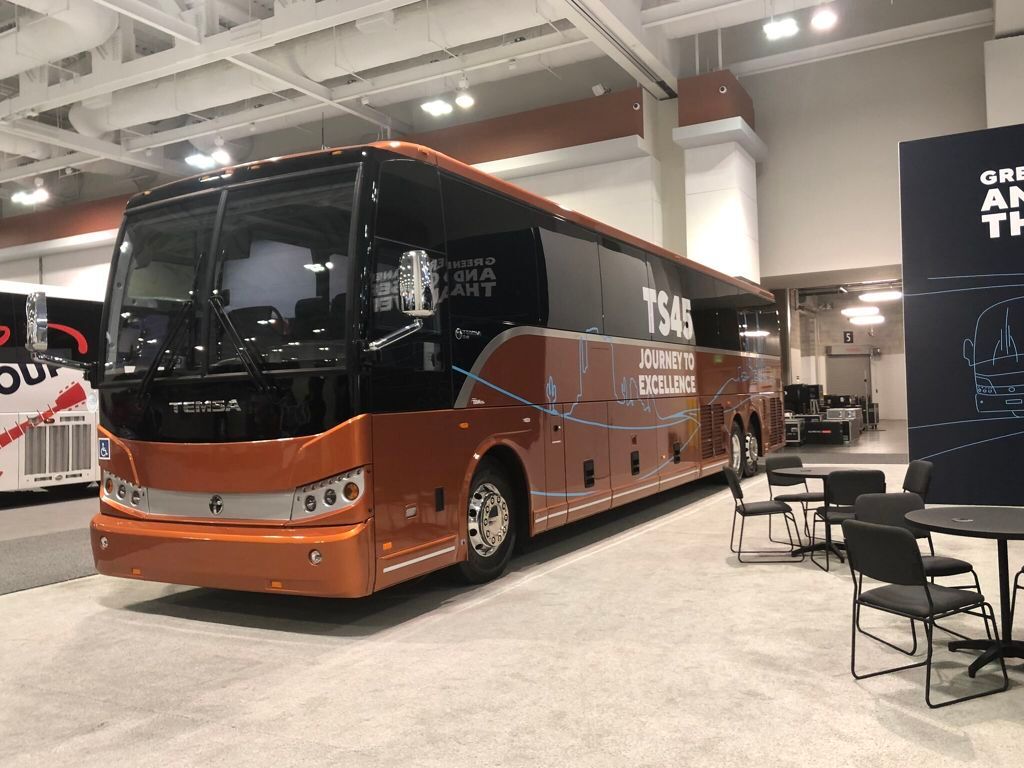
The association will be celebrating in style at this year’s annual UMA Motorcoach Expo in Orlando, Florida, where it has promised its guests an unforgettable and ‘once in a generation’ experience to celebrate the history of the motorcoach industry— all with rigorous safety protocols in place.
This will be the first national meeting in our industry in the United States since March 2020.
We’re going to bring back a lot of the older leadership, the original founders and recognize them at the event in Orlando.
The event already has at least 70 exhibitors confirmed to attend that will be able to provide solutions for operators when business starts to increase again.
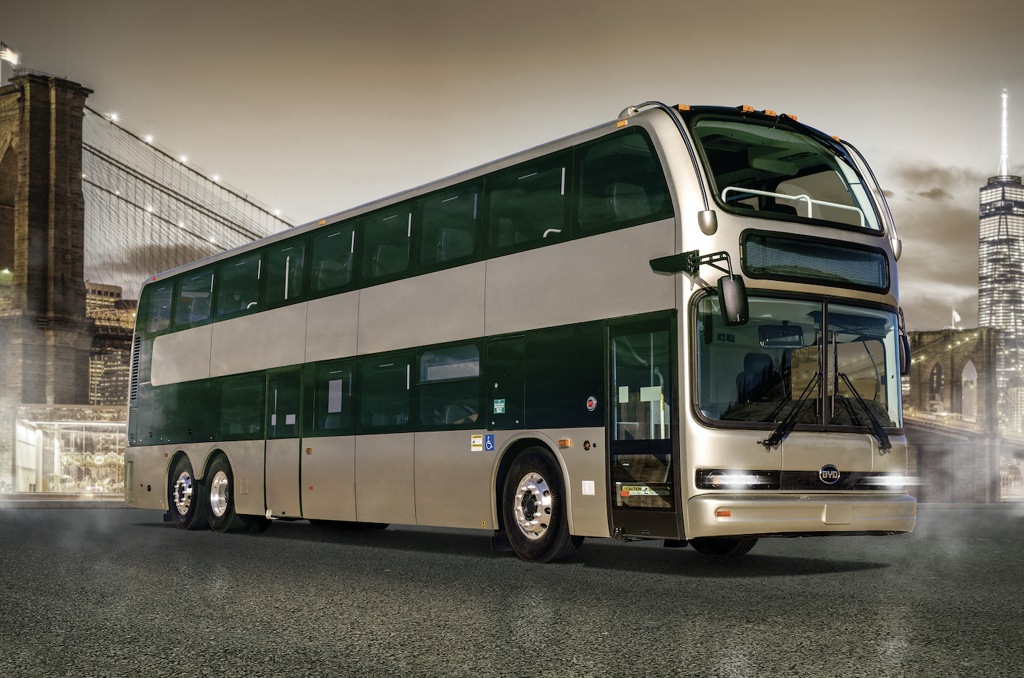
The event was initially scheduled for March 3 until March 7, it has now been put back to April 21 until April 25. The new schedule is to allow more people to receive the vaccination and for operators to potentially receive some federal economic relief— as Larry Killingsworth explains:
We’ve shifted the event back seven weeks so that it will give more time for people to get vaccinated. We hope that it also gives more time for the new funding to get distributed to our operators so that they can afford to attend the Expo.
The Motorcoach Expo marks a historical turning point for the industry that has been on its knees for the past 12 months and highlights the importance of its members to reconnect with one another and be prepared for what’s to come.
For the grand scheme a lot is on the line as to when and how the White House introduces its proposed $1.9 trillion stimulus package. This is especially true for the motorcoach industry that could see its source of revenue multiply 4-fold this year.
Given that by the end of 2020 the motorcoach industry had the 60% majority of senators backing the $2 billion CERTS Act, the industry’s voice is one that is being heard in Washington and could prove vital when the new stimulus package is brought in.
In the meantime, the United Motorcoach Association will enter its 50th year in the industry continuing to back the coalition of operators, associations, and major manufacturers to seek additional help from Congress. Moreover, the association will continue to provide all the support its members need to maintain their lifeline and implement a strategy to get through the crisis.
Although the economy has been rattled we are slowly beginning to identify new holes in the market that only the motorcoach industry can fill. In addition to the emergency and military transportation we frequently saw last year, there is an increase in demand of public transit authorities needing private transportation solutions to fill in gaps in their transport networks.
On top of that, due to last year’s postponed sports, this year’s doubled-up calendar is screaming for a transportation solution that can support these sports events safely and efficiently. Likewise, the rising interest in domestic travel is influencing the travel and tour industry to rethink how to cater for a new, younger audience that wants to explore its nation.
As the campaign for more funding progresses, it is up to motorcoach companies to reflect on what last year’s lesson has taught; to come out of the comfort zone and diversify standard business operations by finding the sources where their transportation solution is needed most.

ABOUT SCOTT FRANKLAND
Scott Frankland is Head of Content at Sengerio. His spirit of inquiry leads him to the world of transportation and mobility to connect with the industry’s leading experts and shine a light on the hot topics.